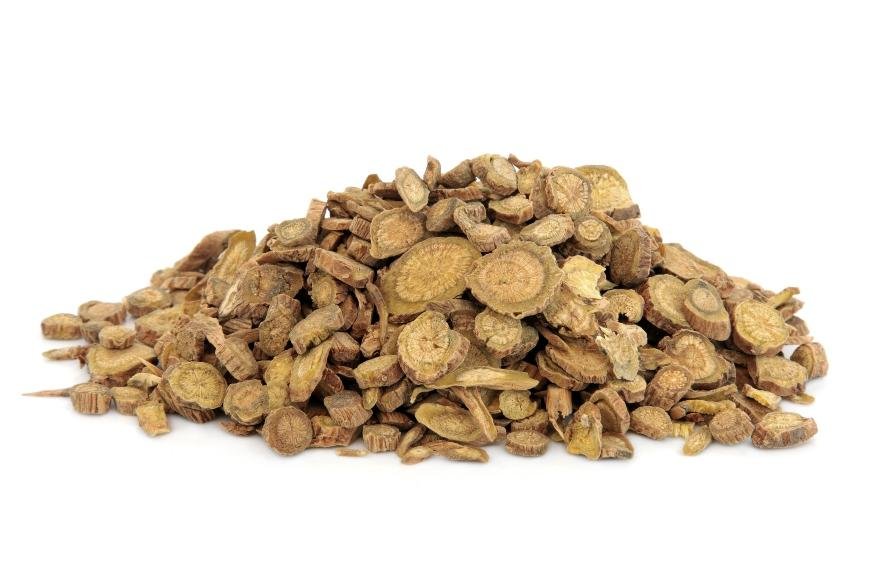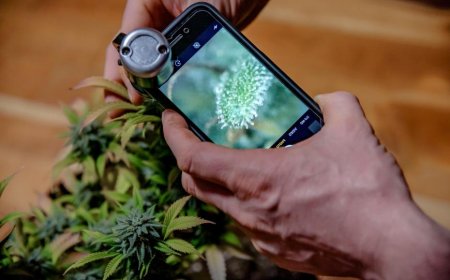What is Skullcap?
You can find the answer to "What is skullcape" in our comprehensive guide, exploring its history, effects, side effects, and tips for responsible use.

As a young adult interested in recreational drugs, you might have come across this intriguing plant. In this blog post, we will delve into the world of skullcap and explore its history, effects, and safety.
From Chinese to American skullcap varieties, each type has its unique properties and uses. The helmet-like shape of their flowers lends them the name "skullcap." But what makes these plants so fascinating?
By diving into the history of skullcap use and understanding its effects on our bodies, we can determine if it's safe for consumption. Furthermore, we'll provide guidance on using skullcap responsibly to ensure a positive experience with this captivating herb. So join us as we unravel the mysteries behind What is Skullcape?
Table of Contents:
- Skullcap: The Minty Medicinal Herb
- Skullcap: A Traditional Remedy with Modern Potential
- FAQs in Relation to What is Skullcape
- Conclusion
Skullcap: The Minty Medicinal Herb
Skullcap is a perennial herb known for its medicinal properties, used for centuries to treat anxiety, insomnia, and inflammation. American skullcap and Chinese skullcap are both used for similar purposes, such as treating anxiety, insomnia, and inflammation. The primary active compounds in skullcaps are flavonoids like baicalein and wogonin, which have calming effects on the nervous system. Skullcap has a rich history of use in traditional medicine practices around the world, from Native Americans to Chinese practitioners.
Research suggests that skullcap may help reduce symptoms associated with anxiety, improve sleep quality, and possess anti-inflammatory effects. It is essential to speak with a medical professional before adding skullcap to your health regimen, particularly if you are taking medications or have existing health issues.
Skullcap: A Traditional Remedy with Modern Potential
Skullcap, a plant from the mint family, has been used for centuries in traditional medicine. Native Americans brewed American skullcap into teas to treat anxiety, insomnia, inflammation, and epilepsy. Chinese skullcap has been used in Traditional Chinese Medicine to address respiratory infections and protect against oxidative stress-related diseases.
Scientific research is exploring the potential health benefits of both American and Chinese skullcaps. It is essential to be aware of potential risks and interactions when utilizing these plants, so as to ensure their use is done responsibly. The ancient roots of using plants like skullcap remind us that natural remedies have been an integral part of human history.
So, if you're looking for a natural way to support your health, skullcap may be worth exploring.
Skullcap Effects

Get ready to chill out with skullcap, the herb that's been used for centuries to promote relaxation and reduce anxiety. Research suggests that American skullcap possesses anxiolytic properties, making it effective in managing anxiety disorders.
But wait, there's more. Skullcap may also have potential anti-inflammatory and antioxidant properties, helping to reduce inflammation and protect cells from oxidative damage.
- Pain relief: Use skullcap to ease headaches, menstrual cramps, muscle pain, and other types of discomfort.
- Nervous system support: Promote balance between excitatory and inhibitory neurotransmitters with skullcap.
- Sleep aid: The sedative qualities of skullcap make it ideal for aiding with insomnia or other sleep-related issues.
It is important to speak with a healthcare practitioner before using skullcap or any other herbal remedy, particularly if you are taking medications or have existing health issues. And don't forget to look for reputable brands that use third-party testing to verify their ingredients' purity and potency.
Skullcap Side Effects
Skullcap has potential benefits, but it's crucial to know its possible side effects and complications. Drowsiness or sedation is a common side effect of skullcap due to its calming effect on the nervous system.
Large amounts of skullcap over an extended period may cause liver damage, but this is rare and often linked to contaminated products.
- Allergic Reactions: Some people may experience itching, rash, or difficulty breathing due to an allergy to skullcap.
- Potential Drug Interactions: Skullcap may interact with certain medications, so consult your doctor before using if taking prescription drugs.
- Pregnancy & Breastfeeding: It's best for expectant mothers and nursing women to avoid using skullcap due to insufficient research on safety.
Since the FDA doesn't regulate dietary supplements like skullcap, it's essential to purchase from reputable brands with third-party testing for purity and potency.
For more information on skullcap, check out this source.
Is Skullcap Safe?
Assessing the Safety Profile Skullcap is a popular herbal remedy, but it's important to understand its safety profile before using it. According to WebMD, American skullcap is generally safe when taken appropriately by mouth.
However, some skullcaps containing germander have been linked to liver damage, so it's crucial to purchase from reputable sources and follow dosage recommendations.
- Purchase from reputable sources: Buy only from trusted retailers who provide third-party testing results confirming their product's purity and potency.
- Follow recommended dosages: Adhere strictly to suggested serving sizes outlined on packaging labels or given by your doctor.
- Avoid combining with other substances: Consult a knowledgeable practitioner before combining multiple remedies.
Pregnant and breastfeeding women should avoid using skullcap due to insufficient data regarding its safety during these periods.
In conclusion, while skullcap is generally considered safe, it's crucial to exercise caution and follow responsible usage guidelines to minimize potential risks associated with its use.
Using Skullcap Responsibly

Skullcap is a powerful herb that can provide numerous benefits, but it's important to use it responsibly to minimize potential risks and side effects.
Here are some tips to help you enjoy the benefits of skullcap while reducing the chances of experiencing adverse reactions:
- Start with a low dose: Begin with a small amount and gradually increase your dosage as needed.
- Purchase from reputable sources: Buy skullcap products from reliable vendors who can provide information about their product's purity and potency.
- Avoid mixing with other substances: Combining skullcap with other drugs or alcohol may lead to unpredictable effects and increase the risk of negative side effects.
- Familiarize yourself with possible interactions: Some medications may interact negatively with skullcap. Consult your healthcare provider if you're taking prescription medications before using this herb.
- Mind your surroundings: If trying skullcap in an unfamiliar setting, make sure you feel comfortable and safe in that environment to avoid exacerbating any potential side effects.
Incorporating these responsible usage practices will not only ensure safety but also enhance the overall experience when consuming this ancient herb known for its calming properties.
Remember that everyone reacts differently, so listen closely to how your body responds when using any new substance like skullcap. Always prioritize safety over experimentation, and you'll be able to enjoy the benefits of skullcap without any unnecessary risks. Happy exploring.
FAQs in Relation to What is Skullcape
What can skullcap do for your body?
Skullcap can calm your nerves, help with anxiety and insomnia, reduce inflammation, and support liver health.
Is skullcap an anti-inflammatory?
Yes, skullcap has anti-inflammatory properties that can help alleviate pain and inflammation in the body.
Is skullcap FDA approved?
No, skullcap is considered a dietary supplement and doesn't require FDA approval like prescription medications do, but manufacturers must follow good manufacturing practices (GMPs) to ensure safety and quality.
Can skullcap increase estrogen?
There's limited evidence suggesting that some species of skullcaps might interact with estrogen receptors in cells, but more research is needed to confirm these findings conclusively, so it's best to consult your healthcare provider before using any herbal supplements if you have concerns about hormonal balance.
Conclusion
Skullcap is a herb with a long history of use in traditional medicine for treating anxiety, insomnia, and inflammation, and is also used recreationally by some young adults.
- Native American tribes have used skullcap for medicinal purposes for centuries.
- Skullcap can have various effects on the body, including relaxation and sedation.
- However, excessive or improper use of skullcap can lead to side effects such as dizziness, confusion, and liver damage.
- It's important to consult with a healthcare professional before taking skullcap or any other supplement or medication to ensure safe usage.
While there may be potential benefits to using skullcap under medical supervision, recreational use should be approached with caution due to the possible risks involved.
Remember, your health always comes first!




































































































































